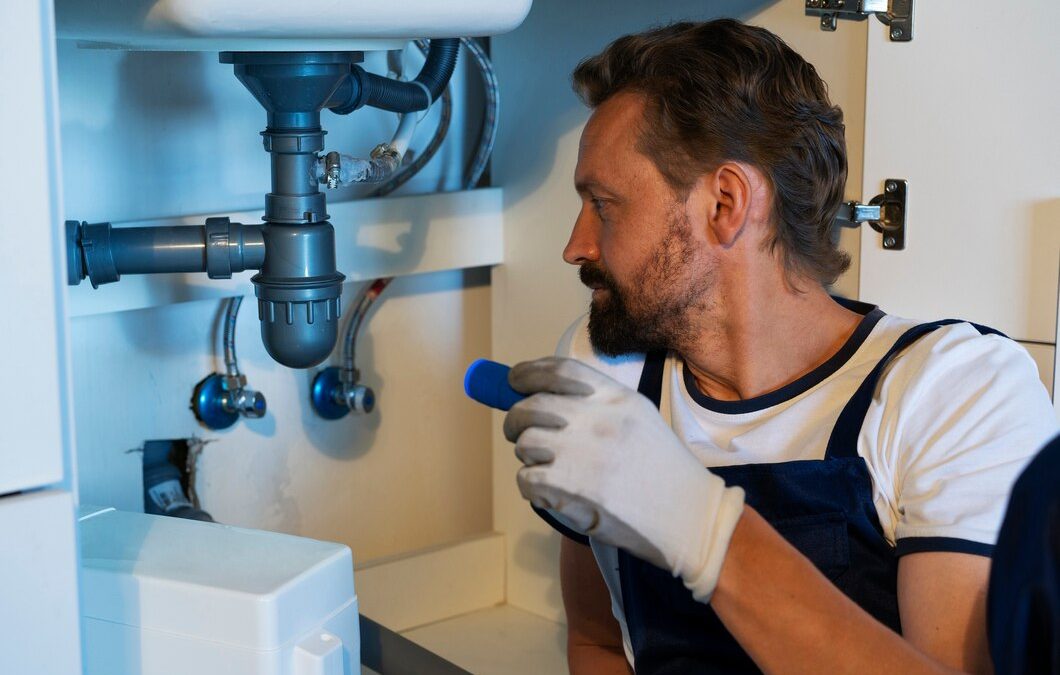Keeping a commercial kitchen running smoothly requires constant attention to detail, especially when it comes to plumbing systems. Clogs are one of the most common issues faced by busy kitchens and can disrupt operations, create unsanitary conditions, and lead to costly repairs. Understanding how to prevent these clogs can save you time, money, and headaches.
In a bustling commercial kitchen, various factors contribute to clogged drains. From grease buildup to food particles finding their way into the sink, these issues can quickly escalate if not properly managed. It’s essential to implement effective strategies to keep drains clear and functioning optimally, ensuring that your kitchen remains efficient and hygienic.
By adhering to best daily practices and knowing when to employ specific tools, you can significantly reduce the risk of clogs. Taking proactive steps, rather than reacting to problems as they arise, is key to maintaining a smoothly operating kitchen. Knowing when to call in a professional for routine maintenance and thorough cleaning will also keep your plumbing system in top shape. Making these efforts part of your regular kitchen management will help create a more productive and stress-free working environment.
Understanding the Common Causes of Clogs in Commercial Kitchens
Clogs in commercial kitchens are common due to the high volume of food and debris that gets washed down the drains. One of the main causes is grease buildup. When hot grease is poured down a drain, it cools and solidifies, sticking to the pipes. Over time, this buildup can restrict water flow and lead to clogs.
Another frequent culprit is food waste. Scraps of food, especially fibrous or starchy items, can accumulate in the drain and cause blockages. Items like pasta, rice, and vegetable peels are particularly problematic. Non-food items such as paper towels, plastic wrappers, and other debris can also end up in the drains and cause clogs. Understanding these common causes can help us implement effective measures for preventing them.
Daily Best Practices to Prevent Clogs
Preventing clogs in a busy commercial kitchen requires daily diligence. We recommend scraping all food waste into the trash before washing dishes. Avoid using the sink or dishwasher to dispose of food scraps. Install drain strainers or screens in sinks to catch food particles and prevent them from entering the plumbing system.
Another key practice is to avoid pouring grease down the drain. Instead, we should collect grease in a container and dispose of it properly. Regularly clean and maintain grease traps to ensure they function efficiently. Additionally, running hot water through the drains can help break down any minor grease or food particles that managed to slip through. By following these daily practices, we can significantly reduce the likelihood of clogs and keep our commercial kitchen running smoothly.
Essential Tools and Equipment for Keeping Drains Clear
Having the right tools and equipment can make a big difference in maintaining clear drains in a commercial kitchen. One vital tool is a plunger. Plungers are effective for dislodging minor clogs and can be used on sinks and floor drains. Keeping a plunger easily accessible can help manage small blockages before they become major issues.
A drain snake, or auger, is another essential tool. This flexible metal cable can be inserted into pipes to break up clogs. Manual and electric versions are available, with electric models offering more power for tougher blockages. Regular use of a drain snake can prevent debris from accumulating and causing serious clogs. Additionally, enzyme-based drain cleaners are beneficial. Unlike chemical cleaners, enzyme cleaners use natural bacteria to break down organic material, making them safe for regular use without damaging pipes.
When to Call a Professional for Drain Maintenance
While daily practices and essential tools go a long way in preventing clogs, sometimes professional help is necessary. It’s important to recognize when a problem is beyond our capabilities. If we’ve tried using plungers, drain snakes, and enzyme cleaners without success, it’s time to call a professional. Persistent slow drains, recurring clogs, or multiple clogged drains in different areas of the kitchen are signs that a deeper issue might be present.
Professional plumbers have advanced tools and expertise to diagnose and resolve severe blockages. They can also perform routine maintenance to ensure our plumbing system remains in optimal condition. Annual inspections by a professional can help identify potential problems before they become major disruptions.
Conclusion
In a busy commercial kitchen, preventing clogs is essential for smooth operations. By understanding common causes and practicing daily habits, we can significantly reduce the risk of blockages. Using the right tools and seeking professional help when needed are also key components in maintaining a healthy plumbing system.
For expert assistance with your commercial kitchen’s plumbing needs, contact Midlothian Plumbing. We are here to provide thorough and reliable services to keep your business running smoothly. Don’t wait for a plumbing disaster—reach out to us today!


